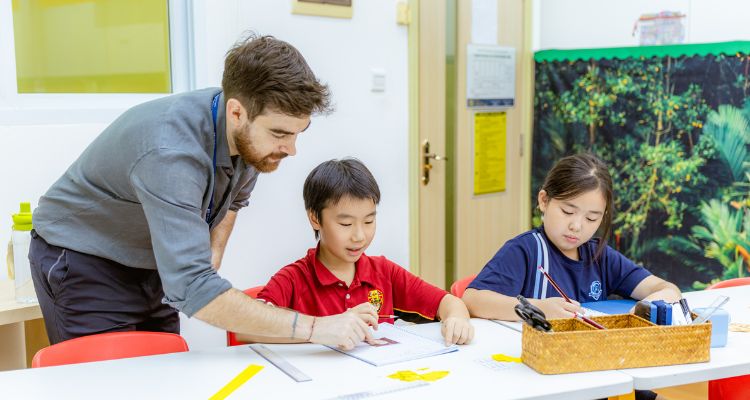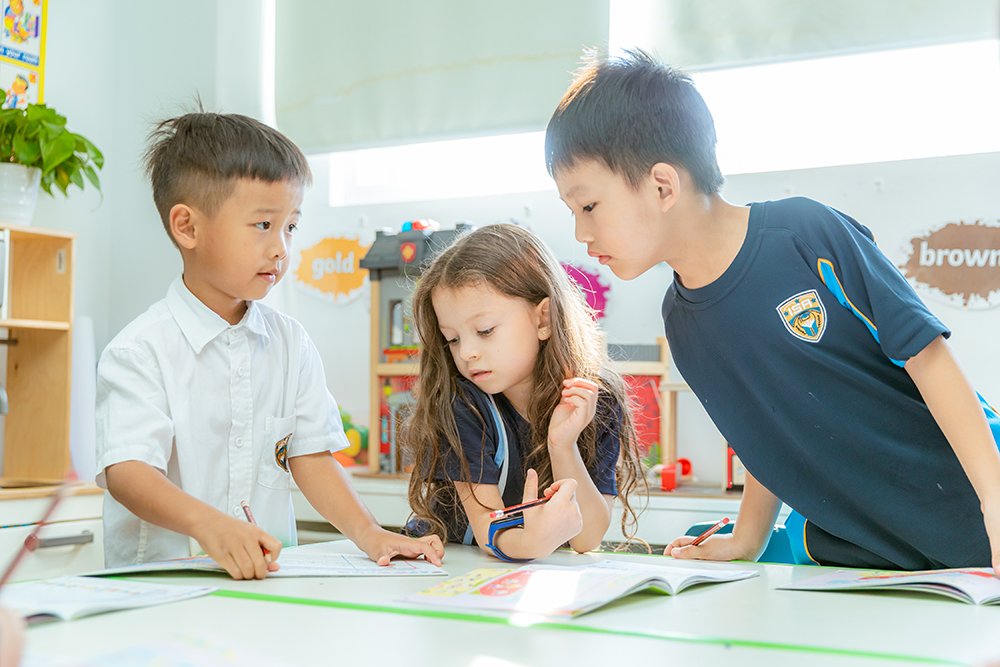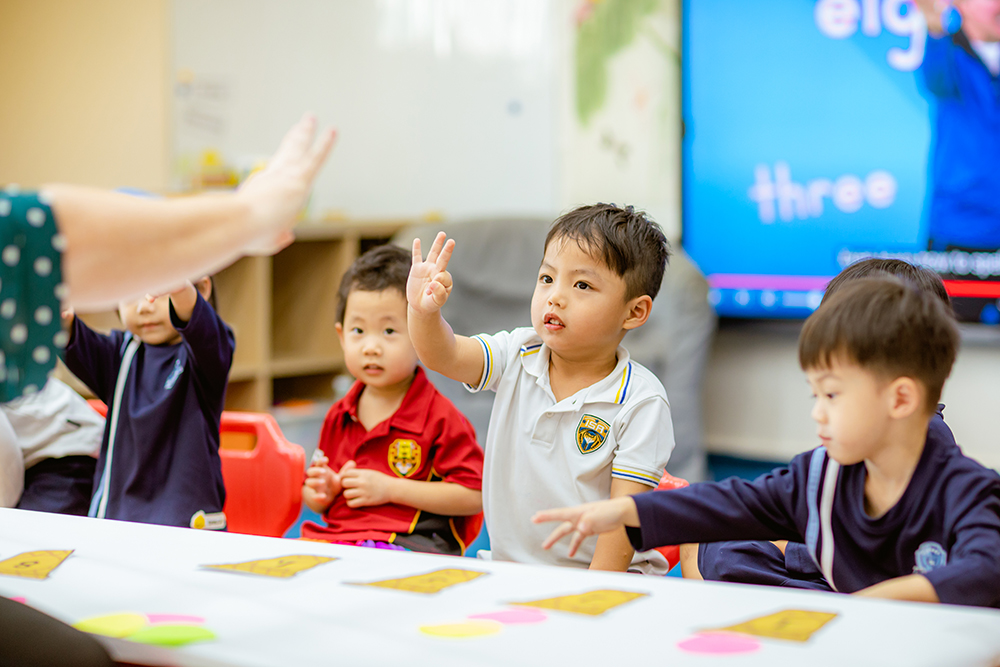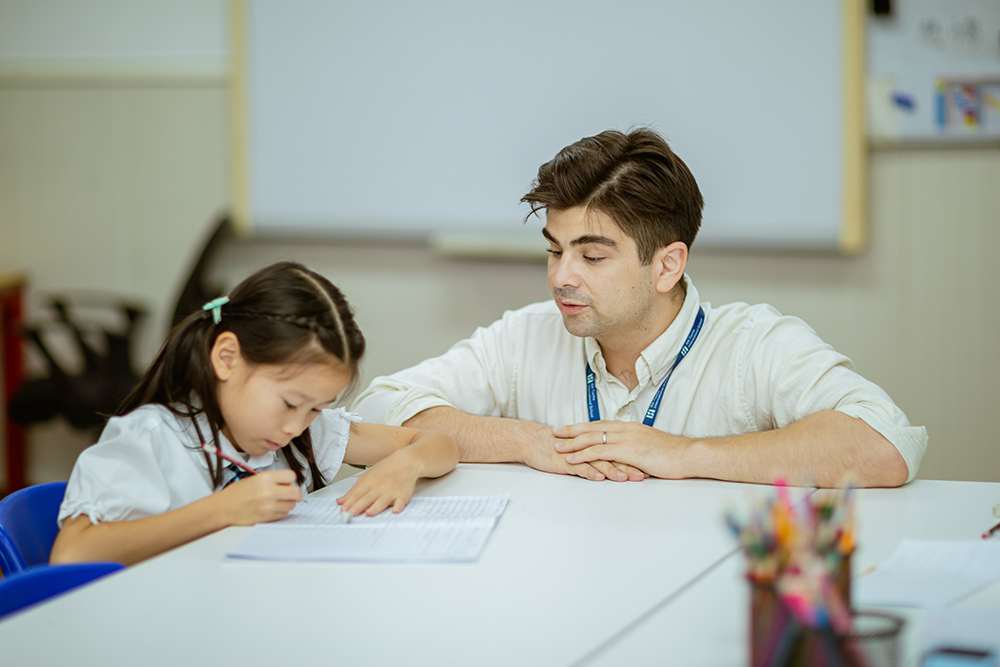



The International Baccalaureate (IB) continuum of international education for 3 to 19 year olds is unique because of its academic and personal rigour. We challenge students to excel in their studies and in their personal growth. We aim to inspire a quest for learning throughout life that is marked by enthusiasm and empathy. The IB aspires to help schools develop well-rounded students with character who respond to challenges with optimism and an open mind, are confident in their own identities, make ethical decisions, join with others in celebrating our common humanity and are prepared to apply what they learn in real-world, complex and unpredictable situations.The IB offers high-quality programmes of international education that share a powerful vision. Informed by the values described in the learner profile, an IB education:• focuses on learners – the IB’s student-centred programmes promote healthy relationships, ethical responsibility and personal challenge• develops effective approaches to teaching and learning – IB programmes help students to develop the attitudes and skills they need for both academic and personal success• works within global contexts – IB programmes increase understanding of languages and cultures, and explore globally significant ideas and issues• explores significant content – IB programmes offer a curriculum that is broad and balanced, conceptual and connected.IB learners strive to become inquirers, knowledgeable, thinkers, communicators, principled, open-minded, caring, risk-takers, balanced, and reflective. These attributes represent a broad range of human capacities and responsibilities that go beyond intellectual development and academic success.
The PYP is designed for students aged 3 to 12. It focuses on the development of the whole child as an inquirer, both in the classroom and in the world outside. It is a framework guided by six transdisciplinary themes of global significance, explored using knowledge and skills derived from six subjects areas, as well as transdisciplinary skills, with a powerful emphasis on inquiry. The PYP is flexible enough to accommodate the demands of most national or local curriculums and provides the best preparation for students to engage in the IB Middle Years Programme.
These themes provide IB World Schools with the opportunity to incorporate local and global issues into the curriculum and effectively allow students to “step up” beyond the confines of learning within subject areas.
Inquiry into the nature of the self; beliefs and values; person, physical, mental, social and spiritual health; human relationships including families, friends, communities, and cultures; rights and responsibilities; what it means to be human
Inquiry into orientation in place and time; personal histories; homes and journeys; the discoveries, explorations and migrations of humankind; the relationship between and the interconnectedness of individuals and civilizations, from local and global perspectives
Inquiry into the ways in which we discover and express ideas, feelings, nature, culture, beliefs and values; the ways in which we reflect on, extend and enjoy our creativity; our appreciation of the aesthetic
Inquiry into the natural world and its laws, the interaction between the natural world (physical and biological) and human societies; how humans use their understanding of scientific principles; the impact of scientific and technological advances on society and on the environment.
Inquiry into the interconnectedness of human-made systems and communities; the structure and function of organizations; societal decision-making; economic activities and their impact on humankind and the environment
Inquiry into rights and responsibilities in the struggle to share finite resources with other people and other living things; communities and the relationship within and between them; access to equal opportunities; peace and conflict resolution.
The International Baccalaureate aims to develop inquiring, knowledgeable and caring young people who help to create a better and more peaceful world through intercultural understanding and respect. To this end, the organization works with schools, governments and international organizations to develop challenging programmes of international education and rigorous assessment. These programmes encourage students across the world to become active, compassionate and lifelong learners who understand that other people, with their differences, can also be right.


